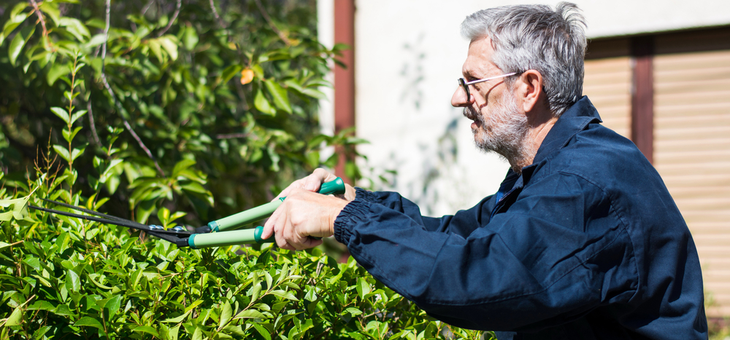Older Australians are most concerned about getting suitable assistance to remain at home and go about their everyday lives, according to a new assessment of wellbeing commissioned by The Benevolent Society.
And the activity that contributes most to wellbeing is volunteering.
The 2019 Index of Wellbeing for Older Australians (IWOA) was produced for The Benevolent Society by the National Centre for Social and Economic Modelling (NATSEM) and shows the key triggers affecting the wellbeing of Australians aged 65-plus and the areas where low wellbeing is widespread and where extra support services are needed.
The index, first commissioned in 2015, assesses wellbeing across five key areas – education, resources, wealth and housing, functional ability and participation – using census and administrative data.
Dr Kirsty Nowlan, The Benevolent Society executive director of strategic engagement, research and advocacy, explained that there was a big gap in knowledge about the wellbeing of older Australians across Australia. “The index now gives evidence and insights to all service planners and providers,” she said.
The biggest driver of low wellbeing was a lack of support to go about everyday tasks. Also high on the list were superannuation shortfalls and rental costs. YourLifeChoices quarterly Retirement Affordability Index clearly shows that older Australians who rent face the toughest financial challenges.
Addressing the cry for help, The Benevolent Society report says: “This suggests that access to assistance services is becoming an increasingly important part of wellbeing for older people, alongside and closely connected to other factors such as housing affordability.
“This has implications for government provision and location of services, including the pressing need for additional Home Care Packages (at the appropriate level) for the growing cohort of older people needing assistance to remain at home.”
On the positive side, volunteers and people with higher levels of education reported high levels of wellbeing.
The report says: “Volunteering is a way for older people to make a contribution by participating socially and engaging in community life, and it has been argued that this not only improves morale, self-esteem and creates a larger social network, but also increases life satisfaction.”
While daily news reports focus on the cost of increasing life expectancy, The Benevolent Society report says older Australians are also part of the solution.
“It has been estimated that the economic benefits of mature age people (aged 45 and over) in the workforce are $27.4 billion per annum. In addition, the uncosted contribution of older Australians as carers of people with a disability and carers of grandchildren is $22 billion per annum and their contribution through volunteerism is valued at $16.3 billion per annum.”
The index shows that older people experiencing both the lowest and the highest levels of wellbeing live mainly in urban areas. Those with the highest levels of wellbeing live in urban and rural NSW and Victoria, while those with mid to low levels of wellbeing are especially found in remote areas of NSW and Queensland.
“The intergenerational reports from the Commonwealth Treasury highlight the increasing costs of providing services to an ageing population,” the report says, “including health costs, income support costs, costs of in-community care and aged care.
“This means that services need to be provided to older people in the most effective and efficient way possible. Being able to identify areas of low wellbeing for older people, and the factors contributing to low wellbeing in these areas … will allow governments to address any failures in the provision of core universal services to older people in areas of low wellbeing and to more finely target service provision such as community care services or low income support services.”
What has the greatest effect on your wellbeing? Do you agree with the top concerns and benefits in The Benevolent Society index?
Related articles:
Funds to assist men’s wellbeing
Live longer on this diet
Older drivers not the problem

